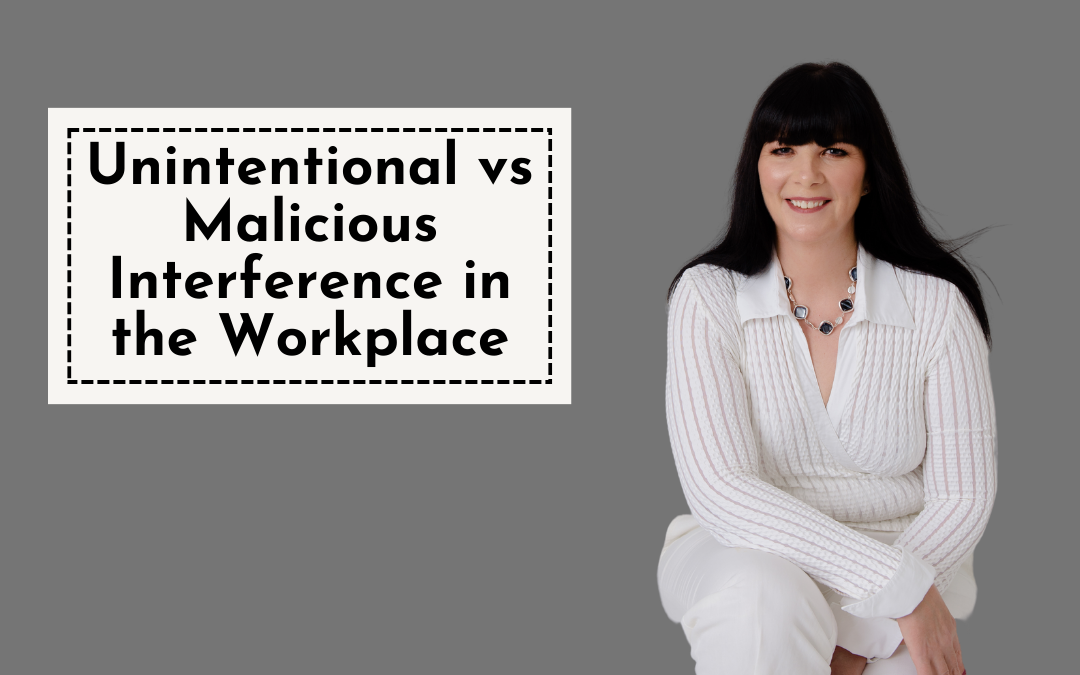In the world of work, we often encounter challenging situations that put our teamwork and leadership skills to the test. Have you ever found yourself in a situation where a colleague has taken over a project you were leading, resulting in some unexpected challenges? This can be hard to navigate, especially as it may make you feel frustrated, pushed out or even angry.
You need to ask yourself, were they intentionally trying to take control and stab you in the back, or was it an innocent mistake? Both situations need to be dealt with calmly, even if you aren’t sure which one it is!
The first step is to gather information. Before taking any action, it’s important to be sure of what exactly has happened. Was it innocuous and just a chance occurrence? Was it more calculated? If you think it was done on purpose, then to what extent has it impacted your work? Do you have any idea what would have led the other person to do this?
Unintentional Interference
If you feel your colleague has interfered unintentionally, here is my advice: instead of immediately stepping in to correct the situation, take a moment to reflect on the broader picture and the importance of growth and mentorship in our professional lives.
Here are some key things to consider:
- Communication is crucial: An environment of open communication should always be encouraged. If you share your concerns as early as you can, you will avoid more misunderstandings.
- Empowering others: Sometimes, stepping back and allowing someone else to take the lead can be a powerful way to empower them and help them grow. Mistakes are part of the learning process and, as mentors, we should be there to support our colleagues if they stumble.
- Learning from mistakes: If your colleague encounters difficulties with the project they have taken from you, offer your assistance rather than ‘rescue’ them. This allows them to learn from their mistakes, develop problem-solving skills, and gain confidence in their abilities.
- Teamwork matters: Ultimately, we’re all part of a team with shared goals. By focusing on the team’s success rather than individual recognition, we can create a stronger, more collaborative work environment.
In the end, work with your colleague to address the challenges, so you can both learn valuable lessons from the experience. Sometimes, the most powerful act of leadership is to guide and support, rather than have total control. Perhaps it would benefit your colleague much more to take the lead on this project than it would for you. And showing off your team management and mentorship skills would be great for you!
Intentional Interference
When you believe a colleague is intentionally trying to take over your work or might be stabbing you in the back, it can be a lot harder to follow the steps I’ve suggested above. Situations like this can be emotionally and professionally taxing. There are some helpful strategies I recommend for (a) hopefully protecting yourself from falling victim to it and (b) addressing it if it does happen.
- Stay calm and collected: When you discover someone has betrayed your trust, it’s natural to feel angry and hurt. However, it’s essential to maintain your composure and address the situation professionally.
- Open dialogue: Reach out to the individual involved and initiate a conversation. Sometimes, misunderstandings or miscommunications can lead to conflicts that are easily resolved by talking things through.
- Speak to your supervisor: If the issue persists, consider discussing it with your supervisor or HR. They can provide guidance and mediate if necessary.
- Build allies: Cultivate positive relationships with colleagues who can support you and vouch for your professionalism and character. Connect with colleagues across the organisation to diversify your network.
- Maintain professionalism: Maintaining a professional demeanour can help prevent misunderstandings. If you need to, take a step back, leave the situation and come back to it when you are feeling more in control of your emotions.
- Document everything: Keep a record of your work, communications and interactions. Having a paper trail can be invaluable in case of disputes.
- Set boundaries: Be cautious about sharing personal information with colleagues and be selective about your confidants.
- Focus on self-development: Continuously improve your skills and knowledge to make yourself an invaluable asset to your organisation.
- Trust your instincts: If you sense a toxic or backstabbing environment, consider whether it’s worth staying in the organisation or if you should be exploring other opportunities.
Remember, workplace backstabbing can happen in any organisation, but how you handle it can make all the difference. Prioritise your well-being, professionalism and personal growth, and you’ll be better equipped to navigate challenging situations.
Have you encountered workplace backstabbing or a situation where someone has taken over your project – even if it was unintentional? I’d love to hear your insights on how to address these situations.
Let’s foster a supportive community where we can learn from each other’s experiences.

